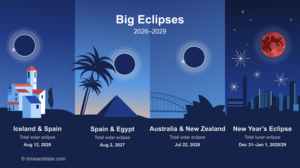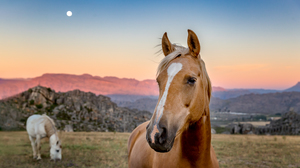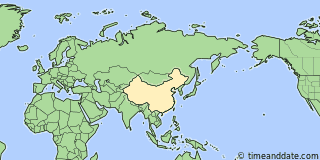| Current Time: | Sep 10, 2025 at 10:48:56 pm |
|---|---|
| Moon Direction: | ↑ 89° East |
| Moon Altitude: | 33.6° |
| Moon Distance: | 364,782 km |
| Next New Moon: | Sep 22, 2025, 3:54 am |
| Next Full Moon: | Oct 7, 2025, 11:47 am |
| Next Moonset: | Tomorrow, 9:29 am |
Moonrise, Moonset, and Phase Calendar for Zhuhai, August 2025
Scroll right to see more
| 2025 | Moonrise/Moonset | Meridian Passing | ||||||||
|---|---|---|---|---|---|---|---|---|---|---|
| Aug | Moonrise | Moonset | Moonrise | Time | Distance (km) | Illumination | ||||
|
|
12:21 pm | ↑ (108°) | 11:39 pm | ↑ (249°) | - | 6:02 pm | (49.2°) | 404,037 | 49.1% | |
| 2 | 1:14 pm | ↑ (113°) | - | - | 6:47 pm | (44.9°) | 403,937 | 58.8% | ||
| 3 | - | 12:17 am | ↑ (245°) | 2:08 pm | ↑ (117°) | 7:35 pm | (41.5°) | 402,503 | 68.3% | |
| 4 | - | 12:59 am | ↑ (241°) | 3:04 pm | ↑ (120°) | 8:26 pm | (39.3°) | 399,858 | 77.1% | |
| 5 | - | 1:46 am | ↑ (239°) | 3:59 pm | ↑ (121°) | 9:19 pm | (38.5°) | 396,235 | 85.1% | |
| 6 | - | 2:39 am | ↑ (239°) | 4:53 pm | ↑ (121°) | 10:14 pm | (39.3°) | 391,934 | 91.7% | |
| 7 | - | 3:36 am | ↑ (240°) | 5:43 pm | ↑ (118°) | 11:08 pm | (41.7°) | 387,331 | 96.6% | |
| 8 | - | 4:36 am | ↑ (243°) | 6:29 pm | ↑ (114°) | Moon does not pass the meridian on this day. | ||||
|
|
- | 5:37 am | ↑ (248°) | 7:11 pm | ↑ (109°) | 12:01 am | (45.6°) | 382,775 | 99.4% | |
| 10 | - | 6:38 am | ↑ (254°) | 7:50 pm | ↑ (103°) | 12:52 am | (50.8°) | 378,619 | 99.8% | |
| 11 | - | 7:38 am | ↑ (261°) | 8:26 pm | ↑ (96°) | 1:41 am | (56.9°) | 375,108 | 97.6% | |
| 12 | - | 8:36 am | ↑ (268°) | 9:02 pm | ↑ (88°) | 2:28 am | (63.8°) | 372,408 | 92.8% | |
| 13 | - | 9:36 am | ↑ (276°) | 9:38 pm | ↑ (81°) | 3:16 am | (70.8°) | 370,563 | 85.5% | |
| 14 | - | 10:36 am | ↑ (283°) | 10:16 pm | ↑ (74°) | 4:04 am | (77.8°) | 369,555 | 76.2% | |
| 15 | - | 11:39 am | ↑ (290°) | 10:59 pm | ↑ (68°) | 4:55 am | (84.2°) | 369,293 | 65.4% | |
|
|
- | 12:44 pm | ↑ (295°) | 11:47 pm | ↑ (63°) | 5:49 am | (89.6°) | 369,677 | 53.7% | |
| 17 | - | 1:51 pm | ↑ (299°) | - | 6:47 am | (86.3°) | 370,622 | 41.7% | ||
| 18 | 12:41 am | ↑ (60°) | 2:56 pm | ↑ (301°) | - | 7:48 am | (84.0°) | 372,085 | 30.3% | |
| 19 | 1:41 am | ↑ (59°) | 3:57 pm | ↑ (301°) | - | 8:50 am | (83.7°) | 374,052 | 20.1% | |
| 20 | 2:45 am | ↑ (60°) | 4:52 pm | ↑ (298°) | - | 9:50 am | (85.4°) | 376,531 | 11.6% | |
| 21 | 3:49 am | ↑ (63°) | 5:40 pm | ↑ (294°) | - | 10:47 am | (88.8°) | 379,519 | 5.3% | |
| 22 | 4:52 am | ↑ (68°) | 6:21 pm | ↑ (289°) | - | 11:39 am | (86.4°) | 382,978 | 1.4% | |
|
|
5:51 am | ↑ (74°) | 6:58 pm | ↑ (283°) | - | 12:27 pm | (80.8°) | 386,790 | 0.0% | |
| 24 | 6:46 am | ↑ (81°) | 7:31 pm | ↑ (276°) | - | 1:12 pm | (74.7°) | 390,794 | 1.0% | |
| 25 | 7:39 am | ↑ (87°) | 8:02 pm | ↑ (269°) | - | 1:53 pm | (68.5°) | 394,747 | 4.1% | |
| 26 | 8:31 am | ↑ (94°) | 8:33 pm | ↑ (263°) | - | 2:34 pm | (62.3°) | 398,380 | 9.2% | |
| 27 | 9:21 am | ↑ (100°) | 9:04 pm | ↑ (257°) | - | 3:15 pm | (56.4°) | 401,389 | 15.8% | |
| 28 | 10:12 am | ↑ (106°) | 9:37 pm | ↑ (251°) | - | 3:57 pm | (51.1°) | 403,508 | 23.6% | |
| 29 | 11:05 am | ↑ (111°) | 10:13 pm | ↑ (246°) | - | 4:40 pm | (46.4°) | 404,497 | 32.4% | |
| 30 | 11:58 am | ↑ (116°) | 10:53 pm | ↑ (243°) | - | 5:27 pm | (42.6°) | 404,196 | 41.9% | |
|
|
12:53 pm | ↑ (119°) | 11:37 pm | ↑ (240°) | - | 6:16 pm | (39.9°) | 402,537 | 51.7% | |
| * All times are local time for Zhuhai. They take into account refraction. Dates are based on the Gregorian calendar. Illumination is calculated at lunar noon. | ||||||||||
Jan | Feb | Mar | Apr | May | Jun | Jul | Aug | Sep | Oct | Nov | Dec
Elsewhere on mungfali.galihkartiwa07.workers.dev

4 Eclipses Not to Miss 2026–2029
Some eclipses, like this month’s partial solar eclipse, can be very elusive. We’ve compiled a list of upcoming eclipses you can get to in real life.

Skywatching Tips for September 2025
What’s up in the day and night sky in September 2025, including a Blood Moon and a partial lunar eclipse.

Moon Guide for September 2025
Discover the phases of the Moon in September 2025, plus a total lunar eclipse and the New Moon partially eclipsing the Sun.

Full Moon Names
Ancient cultures gave names to the Full Moon. These names are still in use today.
